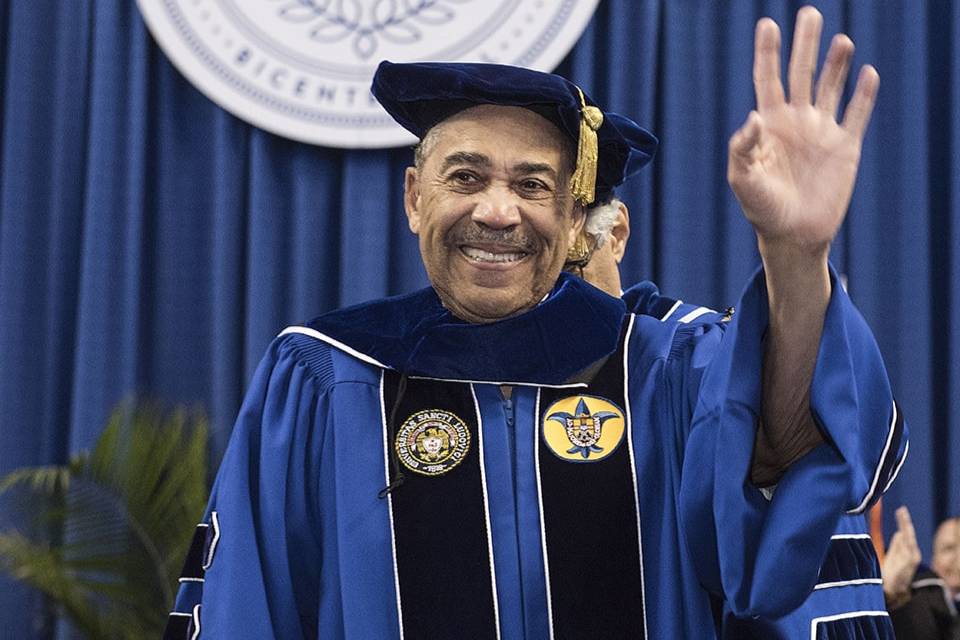William L. Clay Institute for Civic Engagement and Economic Justice
The William L. Clay Institute for Civic Engagement and Economic Justice at Saint Louis University serves as the hub for students, faculty, staff and alumni to become more involved in the democratic process at the local, state, and federal levels.
Through innovative SLU student leadership programs, community-engaged scholarship around issues of justice, and the voter engagement process, the institute works to effect long-term, systemic change that will make our communities stronger and ensure all voices are heard.
The Clay Institute is grounded in SLU's Catholic, Jesuit identity. It invites the campus community to become more involved in various Catholic social teachings, such as the call to family, community and participation, and the dignity of work and the rights of workers, among others. Additionally, the Institute provides an opportunity to engage around the Jesuits' Universal Apostolic Preference of walking with the excluded, as we work toward a more just society.
The Clay Institute aims to:
Educate
Students will learn about various social justice issues facing the St. Louis region, with a particular focus on economic justice, and acquire foundational skills to advocate for social change. Students will also be provided opportunities for education on the political and legislative process at the local, state and federal levels.
Engage
Students will engage in legislative advocacy on issues they are passionate about, through immersive experiences at the local, state and federal levels. Faculty will engage in community-based scholarship and research around various social policies with a particular emphasis on economic justice.
Empower
Students will be equipped with the knowledge, skills and tools necessary to work for long-term change, as well as to improve the civic literacy of fellow students. Community organizations and faculty will be equipped to advance teaching, research and service on key social issues. The campus community will be engaged around the voting process for local, state and national elections.


















